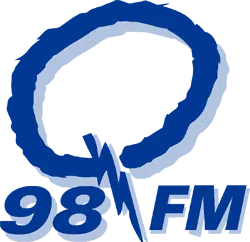As we approach September 30, it’s essential to pause and reflect on the responsibility we all share in the path to reconciliation. The National Day for Truth and Reconciliation is a time to remember the painful history of residential schools in Canada and their ongoing impact on Indigenous communities. It is not just a day of reflection, but a reminder that reconciliation is a journey, one that each of us has a role in.
At Pattison Media, we stand alongside Canadians in honoring the legacy of those affected by residential schools. On this day, we’re proud to participate in ‘A Day to Listen’, a special broadcast dedicated to amplifying Indigenous voices, in partnership with the Gord Downie and Chanie Wenjack Fund. From 6 a.m. to 6 p.m., tune in to your local Pattison Media station to hear stories of survival, resilience, and the path forward as shared by residential school survivors, elders, and Indigenous leaders.
Reconciliation means acknowledging the past, understanding its impact, and actively working towards healing and equity. It requires listening, learning, and action. For many Canadians, this journey starts with education. September 30 also coincides with Orange Shirt Day, a movement born from the St. Joseph Mission Residential School Commemoration Project in 2013. The orange shirt has come to symbolize the stripping away of culture, freedom, and self-esteem experienced by Indigenous children over generations.
As we commemorate this day, we encourage you to explore resources and stories that deepen your understanding of reconciliation. By engaging with these stories, you take an active step toward understanding the truth and fostering meaningful change in our communities.
How You Can Participate in Reconciliation:
- Listen: Tune in to ‘A Day to Listen’ on Pattison Media radio stations and hear directly from Indigenous communities.
- Learn: Click here to watch a video on Orange Shirt Day and understand its significance in the reconciliation journey.
- Engage: Explore links to local news stories and educational materials to inform and inspire your own reconciliation efforts.
Reconciliation is not just the responsibility of governments or institutions—it belongs to every one of us. By taking these steps, you help build a Canada where Indigenous Peoples are recognized, respected, and supported. Together, we can create space for healing and a future built on truth and understanding.
Join us on September 30. Let’s listen. Let’s learn. Let’s reconcile.





